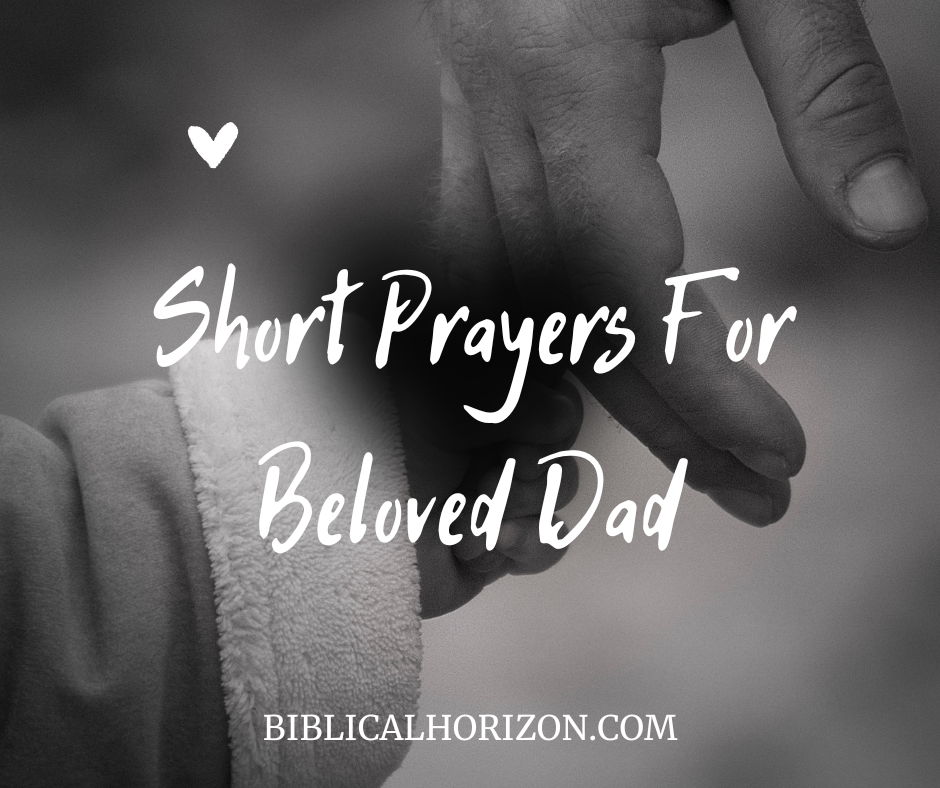A Message of Hope in Dark Moments
If you’re reading this article, you or someone you love may be experiencing emotional struggles that feel overwhelming. Perhaps thoughts of suicide have entered your mind, or you’re seeking to understand what Scripture says about this difficult topic. First and foremost, know that you are not alone, and there is hope.
Crisis Resources – Get Help Now:
- National Suicide Prevention Lifeline: 988 (Available 24/7)
- Crisis Text Line: Text HOME to 741741
- International Association for Suicide Prevention: https://www.iasp.info/resources/Crisis_Centres/
The Bible speaks directly to those experiencing fear, guilt, heartache, and hopelessness. Through healing Bible verses, we discover that God’s heart breaks for those who suffer, and His love extends to every person regardless of their darkest moments.
This comprehensive guide explores Bible verses about suicide while emphasizing healing, forgiveness, and the abundant life God desires for each of us. Whether you’re struggling with suicidal thoughts, supporting someone who is, or seeking to understand the biblical interpretation of suicide, this article provides both spiritual guidance and practical support.
What are some Bible verses about suicide?
Verses Offering Hope and God’s Love
The foundation of understanding Bible verses about suicide begins with recognizing God’s unwavering love and His plans for healing. These verses remind us that even in our darkest moments, we are not forgotten.
Jeremiah 29:11 provides one of the most powerful promises in Scripture:
“For I know the plans I have for you,” declares the Lord, “plans to prosper you and not to harm you, to give you hope and a future.”
This verse directly addresses hopelessness by affirming that God has specific plans for each person’s life – plans filled with hope rather than despair.
Romans 8:38-39 offers unshakeable assurance:
“For I am convinced that neither death nor life, neither angels nor demons, neither the present nor the future, nor any powers, neither height nor depth, nor anything else in all creation, will be able to separate us from the love of God that is in Christ Jesus our Lord.”
This passage specifically mentions that even death cannot separate us from God’s love, providing comfort to those who have lost loved ones to suicide and assurance to those currently struggling.
Isaiah 41:10 addresses fear and anxiety directly:
“So do not fear, for I am with you; do not be dismayed, for I am your God. I will strengthen you and help you; I will uphold you with my righteous right hand.”
Additional Verses for Hope and Strength
| Bible Verse | Key Message | Application |
|---|---|---|
| John 10:10 | Abundant life through Christ | Reminds us of God’s desire for our wellbeing |
| 1 John 4:4 | Greater is He who is in you | Strength to overcome darkness |
| Psalms 55:22 | Cast your burdens on the Lord | Practical encouragement to seek God |
| Isaiah 55:11 | God’s word accomplishes its purpose | Faith in God’s promises |
Verses About God’s Comfort in Suffering
Psalms 34:18-19 speaks directly to the brokenhearted:
“The Lord is close to the brokenhearted and saves those who are crushed in spirit. The righteous person may have many troubles, but the Lord delivers him from them all.”
This verse acknowledges that troubles and heartache are real, but it promises God’s closeness during these times. It’s particularly meaningful for those experiencing grief or illness that contributes to suicidal thoughts.
2 Samuel 17:23 mentions Ahithophel’s suicide in historical context, showing that the Bible doesn’t shy away from discussing this reality while simultaneously pointing to God’s sovereignty over all circumstances.
Bible verses about suicidal thoughts
Verses for When Overwhelmed
When suicidal thoughts arise, specific Bible verses can provide immediate comfort and perspective. These verses acknowledge the reality of mental and emotional pain while pointing toward healing.
Psalms 42:5-6 offers a model for honest conversation with God:
“Why, my soul, are you downcast? Why so disturbed within me? Put your hope in God, for I will yet praise him, my Savior and my God.”
This passage shows that it’s acceptable to acknowledge feelings of being “downcast” while choosing to place hope in God. It’s particularly relevant for those experiencing what we now understand as depression or mental health struggles.
Psalms 73:26 provides strength for physical and emotional weakness:
“My flesh and my heart may fail, but God is the strength of my heart and my portion forever.”
This verse acknowledges that both physical illness and emotional heartache can overwhelm us, but God remains our source of strength.
Key Verses for Mental Struggles
1 Kings 19:3-8 tells the story of Elijah’s depression and suicidal thoughts:
“Elijah was afraid and ran for his life… He came to a broom bush, sat down under it and prayed that he might die. ‘I have had enough, Lord,’ he said. ‘Take my life; I am no better than my ancestors.'”
This passage is crucial because it shows:
- Even great men of faith experienced suicidal thoughts
- God responded with compassion, not condemnation
- God provided practical care (food, rest, companionship)
- Healing came through both spiritual and physical restoration
Psalms 13:1-6 demonstrates David’s honest struggle:
“How long, Lord? Will you forget me forever? How long will you hide your face from me? How long must I wrestle with my thoughts and day after day have sorrow in my heart?”
Practical Application List for Suicidal Thoughts:
- Acknowledge the thoughts without shame
- Reach out for immediate support (call 988)
- Remember God’s promises in Scripture
- Seek professional mental health care
- Connect with trusted friends or family
- Remove means of self-harm from your environment
Bible verse about suicide and depression
Understanding Depression Through Scripture
The Bible contains numerous accounts of individuals experiencing what we now recognize as depression, anxiety, and suicidal thoughts. Understanding these stories helps remove the stigma often associated with mental health struggles within faith communities.
Job 3:20-26 reveals Job’s deep anguish:
“Why is light given to those in misery, and life to the bitter of soul, to those who long for death that does not come?”
Job’s honest expression of hopelessness shows that questioning life’s value during intense suffering is a human experience that God understands and doesn’t condemn.
Jonah 4:3 records the prophet’s request:
“Now, Lord, take away my life, for it is better for me to die than to live.”
God’s response to Jonah wasn’t anger but patient teaching, showing His heart toward those experiencing suicidal thoughts.
God’s Response to Depression and Hopelessness
Matthew 11:28-30 offers Jesus’ direct invitation:
“Come to me, all you who are weary and burdened, and I will give you rest. Take my yoke upon you and learn from me, for I am gentle and humble in heart, and you will find rest for your souls.”
This invitation specifically addresses weariness and being burdened – common experiences in depression and mental health struggles.
Psalms 147:3 promises healing:
“He heals the brokenhearted and binds up their wounds.”
Isaiah 43:2 provides assurance during overwhelming circumstances:
“When you pass through the waters, I will be with you; and when you pass through the rivers, they will not sweep over you.”
Depression and Faith Statistics:
| Statistic | Source |
|---|---|
| 1 in 5 adults experience mental health issues annually | NAMI |
| Christians experience depression at similar rates to general population | Various studies |
| Faith can be both protective and healing when properly applied | American Psychological Association |
What does the bible say about suicide?
Biblical Accounts of Suicide (Historical Context)
The Bible records several accounts of suicide without glorifying or condemning them. These historical records provide important context for understanding what Scripture teaches about life, death, and God’s sovereignty.
1 Samuel 31:3-5 describes Saul and his armor bearer:
“The fighting grew fierce around Saul, and when the archers overtook him, they wounded him critically… Then Saul took his own sword and fell on it. When the armor-bearer saw that Saul was dead, he too fell on his sword and died with him.”
1 Kings 16:15-20 records Zimri’s account:
“When Zimri saw that the city was taken, he went into the citadel of the royal palace and set the palace on fire around him. So he died, because of the sins he had committed.”
Judges 16:25-30 tells of Samson’s final act:
“Then Samson prayed to the Lord, ‘Sovereign Lord, remember me. Please, God, strengthen me just once more…’ Then Samson reached toward the two central pillars… and pushed with all his might. Down came the temple on the rulers and all the people in it.”
Matthew 27:3-4 describes Judas Iscariot’s despair:
“When Judas, who had betrayed him, saw that Jesus was condemned, he was seized with remorse and returned the thirty pieces of silver… ‘I have betrayed innocent blood,’ he said.”
Analysis of Biblical Accounts:
- No explicit condemnation of the individuals
- Context matters – each situation involved extreme circumstances
- Focus remains on God’s sovereignty and mercy
- Emphasis on the value of life rather than judgment of death
Biblical Principles About Life’s Value
Genesis 1:27 establishes human dignity:
“So God created mankind in his own image, in the image of God he created them.”
This foundational verse explains why life has inherent value – we are created in God’s image.
Psalms 139:14 celebrates God’s creative work:
“I praise you because I am fearfully and wonderfully made; your works are wonderful, I know that full well.”
1 Corinthians 6:19-20 teaches about our bodies:
“Do you not know that your bodies are temples of the Holy Spirit… You are not your own; you were bought at a price.”
God’s Heart for the Suffering
Ezekiel 18:32 reveals God’s desire:
“For I take no pleasure in the death of anyone, declares the Sovereign Lord. Repent and live!”
This verse shows that God’s heart is always toward life and healing, never toward death or destruction.
2 Peter 3:9 emphasizes God’s patience:
“The Lord is not slow in keeping his promise, as some understand slowness. Instead he is patient with you, not wanting anyone to perish, but everyone to come to repentance.”
Key Biblical Principles About Suicide:
- Life is sacred because we’re made in God’s image
- God desires healing and restoration, not death
- Circumstances don’t determine our eternal destiny
- God’s mercy extends to all situations
- Community support is essential for those struggling
Practical Application and Pastoral Care
How to Use These Verses for Healing
Scripture becomes most powerful when applied personally and practically. Here are specific ways to use Bible verses about suicide for healing and hope:
Daily Meditation Practice:
- Choose one healing Bible verse each morning
- Write it on a card to carry throughout the day
- Repeat it during moments of anxiety or fear
- End each day by reflecting on God’s faithfulness
Creating a Hope Journal:
- Write down specific God’s promises from Scripture
- Record personal prayers and God’s answers
- Include encouraging messages from friends and family
- Document progress in mental health and faith journey
When Someone You Know is Struggling
James 5:16 encourages mutual support:
“Therefore confess your sins to each other and pray for each other so that you may be healed.”
1 Thessalonians 5:11 calls for encouragement:
“Therefore encourage one another and build each other up, just as in fact you are doing.”
Practical Ways to Show God’s Love:
| Action | Scripture Basis | Impact |
|---|---|---|
| Listen without judgment | James 1:19 | Provides safe space for sharing |
| Offer practical help | 1 John 3:18 | Shows love through actions |
| Pray together | Matthew 18:20 | Invites God’s presence |
| Connect to professional help | Proverbs 15:22 | Wisdom in seeking counsel |
| Stay connected long-term | Galatians 6:2 | Prevents isolation |
Professional Help and Biblical Counsel
Faith and mental health care work together, not against each other. The Bible encourages seeking wise counsel:
Proverbs 27:17: “As iron sharpens iron, so one person sharpens another.”
Proverbs 15:22: “Plans fail for lack of counsel, but with many advisers they succeed.”
Integration of Faith and Mental Health:
- Biblical counseling addresses spiritual aspects of emotional struggles
- Professional therapy provides clinical expertise for mental health
- Medication can be part of God’s provision for healing
- Community support offers ongoing encouragement and accountability
Resources and Hope for Mental Health Support
Crisis Resources
Immediate Help Available 24/7:
| Resource | Contact | Services |
|---|---|---|
| National Suicide Prevention Lifeline | 988 | Crisis counseling, local resources |
| Crisis Text Line | Text HOME to 741741 | Text-based crisis support |
| International Association for Suicide Prevention | iasp.info | Global crisis resources |
| NAMI (National Alliance on Mental Illness) | nami.org | Mental health education and support |
Biblical Counseling and Support
Finding Help Within Faith Communities:
- Pastoral counseling services
- Faith-based therapy providers
- Church support groups
- Online Christian mental health resources
- Bible study groups focused on healing
Recommended Apps and Resources:
- YouVersion Bible App (includes healing verse collections)
- Abide (Christian meditation app)
- Sanvello (anxiety and mood tracking with faith integration)
- BetterHelp (includes faith-based counselors)
Long-term Spiritual Growth and Healing
Daily Bible Reading Plans for Hope:
- Psalms of comfort and strength
- God’s promises throughout Scripture
- Stories of healing and restoration
- Verses about forgiveness and love
Prayer and Meditation Practices:
- Morning Scripture reading and prayer
- Evening reflection and gratitude
- Walking meditation with Bible verses
- Worship music that emphasizes hope
Building Supportive Christian Community:
- Regular church attendance
- Small group participation
- Service opportunities that provide purpose
- Friendship with others who share your faith
Statistical Information About Suicide and Faith
Mental Health and Faith Statistics:
| Statistic | Source |
|---|---|
| Suicide is the 10th leading cause of death in the US | CDC |
| Faith communities can reduce suicide risk by 84% | American Journal of Epidemiology |
| Religious attendance correlates with lower rates of depression | Multiple studies |
| Prayer and Scripture reading improve mental health outcomes | Journal of Religion and Health |
Protective Factors in Faith:
- Community support and friendship
- Sense of purpose and meaning
- Hope for the future
- Forgiveness and reduced guilt
- Regular spiritual practices
- Access to pastoral care and biblical counseling
Conclusion: Embracing God’s Heart for Healing
The Bible verses about suicide reveal a God whose heart breaks for those who suffer. Through Scripture, we discover that healing, hope, and forgiveness are always available, regardless of our darkest moments or deepest struggles.
Whether you’re personally struggling with suicidal thoughts, supporting someone who is, or seeking to understand what God says about these difficult topics, remember these essential truths:
Key Takeaways:
- You are loved unconditionally by God
- Suicidal thoughts don’t disqualify you from God’s love
- Healing is possible through faith, community, and professional support
- The Bible offers both comfort and practical guidance
- Hope exists even in the darkest circumstances
If you’re struggling with suicidal thoughts:
- Call 988 immediately for crisis support
- Reach out to trusted friends, family, or faith leaders
- Seek professional mental health care
- Remember that healing takes time, and that’s okay
- Hold onto God’s promises in Scripture
Final Prayer: “Lord, for those reading this who are struggling with hopelessness, fear, or thoughts of suicide, we pray for Your healing touch. Surround them with love, support, and the hope that comes only from You. Help them to see their immense value and the plans You have for their future. Provide them with the help they need and the strength to take each day one step at a time. In Jesus’ name, Amen.”
Remember: You are never alone, you are deeply loved, and there is always hope for healing and a brighter tomorrow. God’s love for you is unshakeable, and His desire is for your healing and wholeness.
Crisis Resources – Get Help Now:
- National Suicide Prevention Lifeline: 988
- Crisis Text Line: Text HOME to 741741
- Or visit your local emergency room
More Prayers
prayer for someone in the hospital

Catherine Frank, founder of BiblicalHorizon.com, shares daily prayers and Bible verses to nurture spiritual growth. With a lifelong passion for scripture and prayer traditions, she creates accessible spiritual content that resonates with both seasoned believers and newcomers seeking divine connection.



